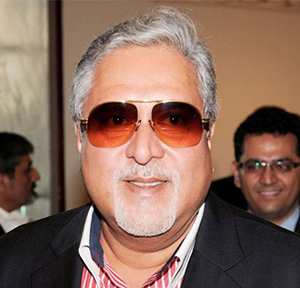New Delhi, Sep 9: Liquor baron Vijay Mallya today informed a Delhi court that he wants to come to India but is unable to travel back as his passport has been suspended by Indian authorities.
 Mallya made the submission through his counsel before Chief Metropolitan Magistrate Sumit Dass in a case lodged for allegedly evading summons in connection with a FERA violation matter.
Mallya made the submission through his counsel before Chief Metropolitan Magistrate Sumit Dass in a case lodged for allegedly evading summons in connection with a FERA violation matter.
On July 9, the court had cancelled the exemption from personal appearance granted to him and had directed him to appear before it. In his application moved through senior advocate Ramesh Gupta, Mallya requested the court that some time be given so that his appearance can be secured.
The counsel submitted the copy of an email sent by Mallya, stating that his passport was suspended on April 23, 2016 without giving him any opportunity of being heard.
Enforcement Directorate (ED), however, told the court that Mallya is already evading proceedings in several other cases and sought time to reply to the plea moved by him today. The court has now put up the matter for further hearing on October 4.
The exemption from personal appearance to Mallya was granted in December 2000 on ED's complaint for evading summons issued to him by it. The agency had issued summons to the businessman in connection with alleged payment of 200,000 dollars to a British firm for displaying Kingfisher logo in Formula One World Championships in London and some European countries in 1996, 1997 and 1998.
It had claimed that the money was allegedly paid without prior approval from RBI in violation of FERA norms. In its plea against Mallya filed through prosecutor N K Matta, ED had also sought issuance of non-bailable warrant against the Chairman of the now-defunct Kingfisher Airlines to secure his presence in the ongoing trial of the case, which is at its final stage.
The agency's plea had said Mallya was reported to be in the United Kingdom and his presence in the trial was essential and had sought court's direction to him to remain personally present in every hearing.
Matta had argued that the court should recall its December 2000 exemption order as a PMLA court in Mumbai has recently issued an open-ended warrant against him in connection with a money laundering case.
According to ED, Mallya was summoned on four occasions for questioning in connection with a contract signed in December 1995 with London-based firm Benetton Formula Ltd for promotion of the Kingfisher brand abroad.
When Mallya failed to appear before ED in response to the summons, a complaint was filed on March 8, 2000 before a court here and later on charges were framed against him under FERA.




Comments
wov thelike marre ninna...
Passport cancellation ensures his continued stay in United kingdom. What is said is a statement .he has not requested for revoking the cancellation and issue of a Passport. Why no action against the Bankers who are alleged for having intentionally failed to do due diligence before releasing money to Kingfisher Airlines. The question which comes to ones mind again and again is the loan was for an airline company and not the individual.Why only the individual is being targeted .even a high school child will know that such huge amounts are not given just at the asking for it. Who were the other politicians,Babus,Bankers being protected by ensuring Vijay Mallya staying at London. Is there a bigger Drama happening?
forget modi's black money. the white money which we had in india. mallya took and ran away.
Add new comment